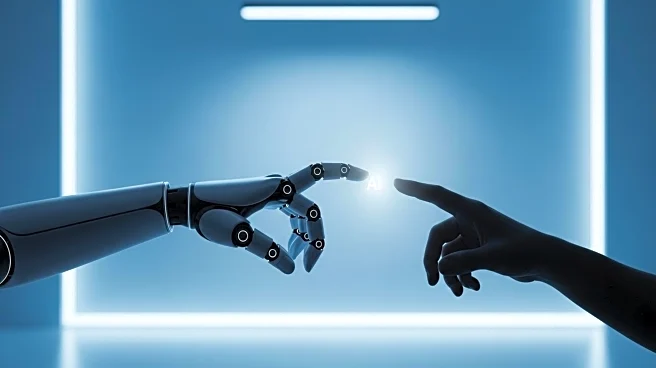What is the story about?
What's Happening?
A recent analysis by the Federal Reserve Bank of New York indicates that the adoption of artificial intelligence (AI) in the workplace is more likely to result in worker retraining rather than replacement. The survey found that while AI use has increased, few firms reported layoffs related to AI. Instead, companies are focusing on retraining employees to work with the new technology. The impact of AI on hiring varies, with some firms reducing hiring and others seeking workers with AI skills.
Why It's Important?
The findings suggest that AI adoption may not lead to significant job losses, as previously feared, but rather to a transformation in workforce skills. This shift could have implications for labor market dynamics, as companies invest in training programs to equip employees with the necessary skills to work alongside AI. The emphasis on retraining could help mitigate potential negative impacts on employment and support a more resilient workforce capable of adapting to technological advancements.
Beyond the Headlines
The broader implications of AI adoption include potential changes in industry practices and workforce composition. As more firms integrate AI, there may be a growing demand for specialized skills, leading to shifts in educational and training programs. Additionally, the ethical considerations of AI use, such as data privacy and algorithmic bias, will require ongoing attention to ensure responsible implementation. The long-term impact on employment and productivity will depend on how effectively businesses and policymakers address these challenges.
















